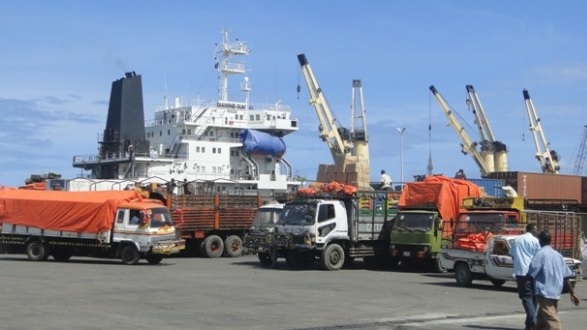
Ethiopia’s interest in Berbera certainly makes sense from a strategic perspective. It is closest to Ethiopia and will connect the eastern, primarily Somali region of Ethiopia to Addis Ababa.
By Brendon J. Cannon, Ash Rossiter (Mail & Guardian)
When Eritrea gained its independence from Ethiopia in 1993, Ethiopia became landlocked and therefore dependent on its neighbors – especially Djibouti – for access to international markets. This dependency has hampered Ethiopia’s aspiration to emerge as the uncontested regional power in the Horn of Africa.
Recently, however, the ground has been shifting. As we point out in a recent article, Ethiopia has attempted to take advantage of the recent involvement of various Arab Gulf States in the Horn of Africa’s coastal zone to reduce its dependency on Djibouti’s port. The port currently accounts for 95% of Ethiopia’s imports and exports. It has done so by actively trying to interest partners in the refurbishment and development of other ports in the region: Port Sudan in Sudan, Berbera in the Somaliland region of Somalia, and Mombasa in Kenya.
But it is Berbera, in particular, that will prove the most radical in terms of challenging regional power dynamics as well as international law. This is because a port deal involving Somaliland will challenge Djibouti’s virtual monopoly over maritime trade. In addition, it may entrench the de-facto Balkanization of Somalia and increase the prospects of Ethiopia becoming the regional hegemon.
Ethiopia’s regional policy
Ethiopia’s interest in Berbera certainly makes sense from a strategic perspective. It is closest to Ethiopia and will connect the eastern, primarily Somali region of Ethiopia to Addis Ababa. It will also provide a much needed outlet for trade, particularly the export of livestock and agriculture.
The development and expansion of the port at Berbera supports two primary pillars of Ethiopia’s regional policy. The first is maintaining Eritrea’s isolation. The aim would be to weaken it to the point that it implodes and is formally reunited to Ethiopia. Or it becomes a pliant, client state.
The second pillar rests on maintaining the status quo in post-civil war Somalia. Simply put, a weak and fractured Somalia enables Ethiopia to focus on quelling persistent internal security difficulties. It also keeps up pressure on Eritrea.
Read the complete story at Mail & Guardian
